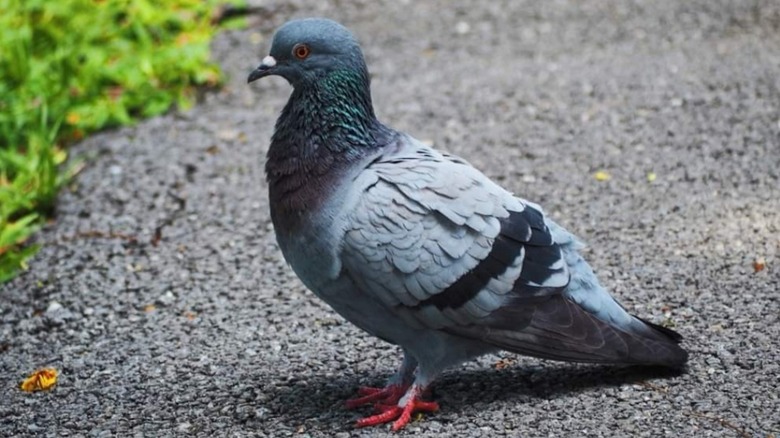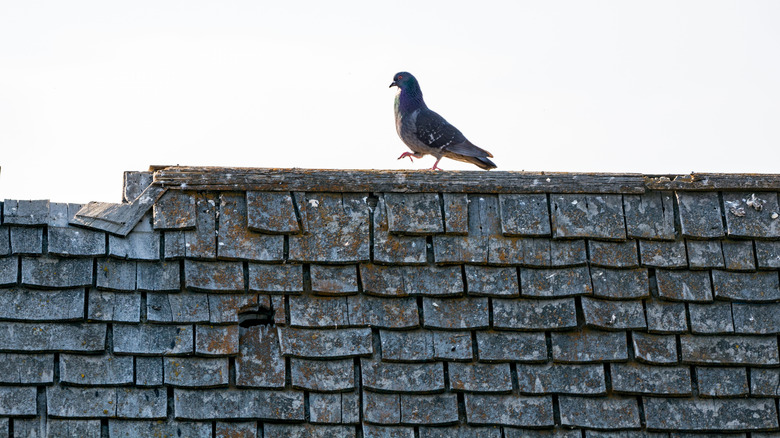Keep Pigeons Out Of Your Yard With A Common Pantry Item
Pigeons might look pretty and seem harmless, but they are actually considered a pest species throughout the United States. Once imported as domesticated birds, pigeons quickly fled their captive habitats and spread into massive feral flocks that invaded farms, mills, and urban areas. The presence of pigeons in large numbers has been associated with human illnesses like encephalitis, ornithosis, histoplasmosis, and salmonella poisoning. They also frequently host parasites like fleas, ticks, and mites.
Aside from spreading disease, pigeon droppings can cause property damage. The droppings' acidic nature can eat away paint, stone, and even metal. Vegetation that is exposed to pigeon dropping can die off or become contaminated and therefore no longer safe for human consumption. And let's face it: Pigeon droppings would be unwelcome in your yard even if they didn't cause tangible long-term damage to your property and plants. Fortunately, there is a simple and inexpensive pantry staple that can deter pigeons from gathering on your property: vinegar.
How to repel pigeons using vinegar
Pigeons and other birds are highly irritated by the smell of vinegar, according to Avian Enterprises. You can use this to your advantage by applying a homemade bird repellent featuring equal parts water and vinegar to the area where you tend to see pigeons gathering on your property. In a quest to avoid the unpleasant smell, the birds should start to leave the scene. If you'd like to add a little extra oomph to your spray, mix in about a dozen drops each of peppermint oil and lemon oil.
Using natural deterrents like vinegar and essential oils to encourage pigeons to avoid your property allows you to reduce the risk of damage and disease without any inhumane treatment. These birds did not ask to be relocated here, after all, and they surely have no ill intent. Further humane measures to deter them include blocking the entrances to outbuildings that may provide shelter for roosting or nesting and removing access to all food sources, including garbage and compost.

